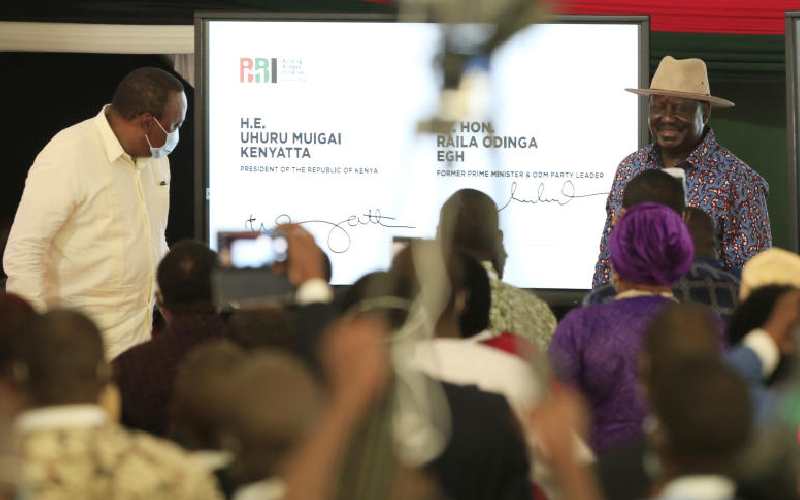×
The Standard e-Paper
Stay Informed, Even Offline

President Uhuru Kenyatta and Former Prime Minister Raila Odinga look at their signatures during the launch of the collection of signatures for the Building Bridges Initiative (BBI) at KICC in Nairobi on November 25, 2020. [Stafford Ondego, Standard]
Whether we recognise it or not, the legal and political history of our times is being made and written. Future generations will read about this season as the age in which the Kenyan Judiciary found its feet, courtesy of the 2010 Constitution.